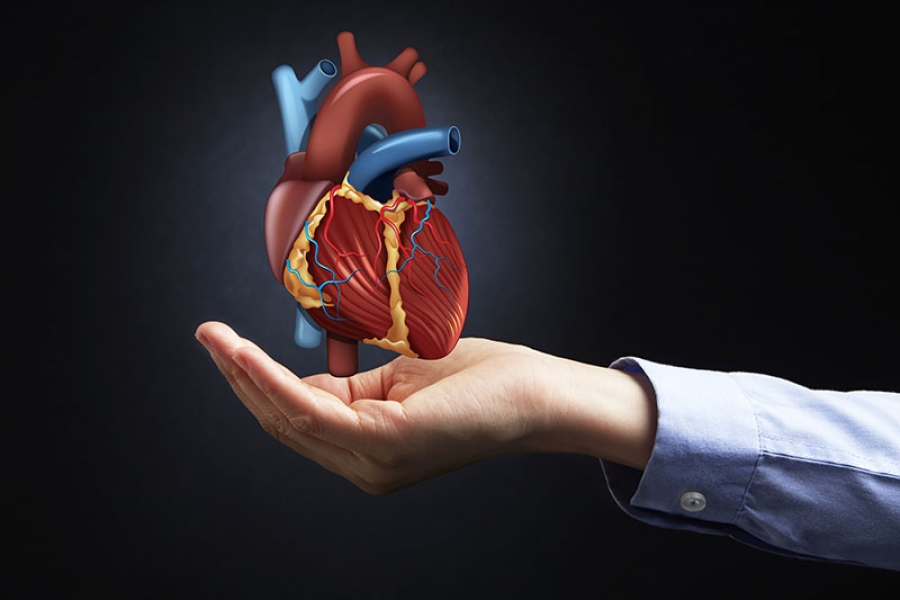Over time, Congenital Heart Disease can weaken the heart muscle and lead to heart failure and arrhythmias.
Symptoms of Coronary Heart Disease
- Chest pain (angina). You may feel pressure or tightness in your chest, as if someone were standing on your chest. This pain, referred to as angina, usually occurs on the middle or left side of the chest. Angina is generally triggered by physical or emotional stress.
- Shortness of breath. If your heart can't pump enough blood to meet your body's needs, you may develop shortness of breath or extreme fatigue with exertion.
- Heart attack. A completely blocked coronary artery may cause a heart attack. The classic signs and symptoms of a heart attack include crushing pressure in your chest and pain in your shoulder or arm, sometimes with shortness of breath and sweating.
Women are somewhat more likely than men are to experience less typical signs and symptoms of a heart attack, such as neck or jaw pain. Sometimes a heart attack occurs without any apparent signs or symptoms.
Causes of Coronary Heart Disease
Coronary artery disease is thought to begin with damage or injury to the inner layer of a coronary artery, sometimes as early as childhood. The damage may be caused by a variety of factors, including:
- Smoking
- High blood pressure
- High cholesterol
- Diabetes or insulin resistance
- Sedentary lifestyle
Risk factors
Risk factors for coronary artery disease include:
- Age - Simply getting older increases your risk of damaged and narrowed arteries.
- Sex - Men are generally at greater risk of coronary artery disease. However, the risk for women increases after menopause.
- Family history - A family history of heart disease is associated with a higher risk of coronary artery disease, especially if a close relative developed heart disease at an early age.
- Smoking - People who smoke have a significantly increased risk of heart disease.
- High blood pressure - Uncontrolled high blood pressure can result in hardening and thickening of your arteries, narrowing the channel through which blood can flow.
- High blood cholesterol levels - High levels of cholesterol in your blood can increase the risk of formation of plaques and atherosclerosis.
- Diabetes - Diabetes is associated with an increased risk of coronary artery disease. Type 2 diabetes and coronary artery disease share similar risk factors, such as obesity and high blood pressure.
- Overweight or obesity - Excess weight typically worsens other risk factors.
- Physical inactivity - Lack of exercise also is associated with coronary artery disease
- High stress. Unrelieved stress in your life may damage your arteries as well as worsen other risk factors for coronary artery disease.

Acclaimed Heart and Vascular Center
We deliver excellent care with compassion after discussing your health and treatment plan with simplicity.
DISCLAIMER: THIS WEBSITE DOES NOT PROVIDE MEDICAL ADVICE
The information, including but not limited to, text, graphics, images and other material contained on this website are for informational purposes only. The purpose of this website is to promote broad consumer understanding and knowledge of various health topics. It is not intended to be a substitute for professional medical advice, diagnosis or treatment. Always seek the advice of your physician or other qualified health care provider with any questions you may have regarding a medical condition or treatment and before undertaking a new health care regimen, and never disregard professional medical advice or delay in seeking it because of something you have read on this website.
